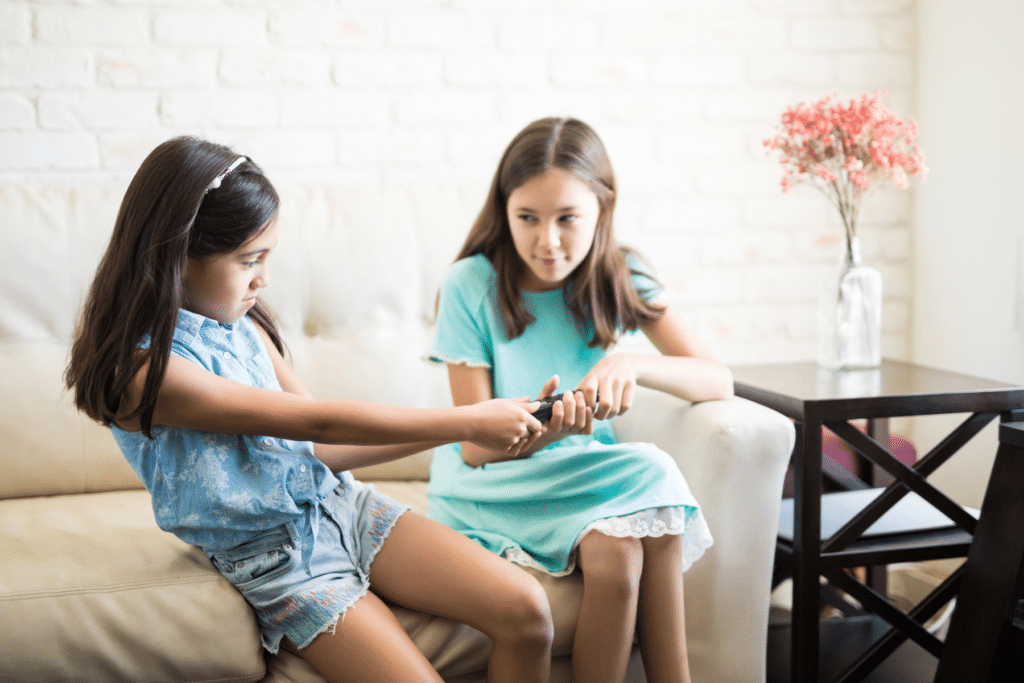
QUESTION:
My 3rd grader has a very difficult time making and keeping friends, yet at the same time, she always wants play dates and is sad when kids don’t want to play with her. She becomes very upset when things don’t go her way, and often makes a scene. She does not share well. A play date with more than one person is a disaster, as she becomes negative and feels that she is being left out, when in reality she doesn’t want to join in or do anything the others want to do. It’s like her way or the highway; she’s completely inflexible. But then she’s sad about it.
I also don’t see her trying to connect with anyone or really get to know anyone. It seems she’s lacking in a certain social/emotional intelligence, not understanding that her actions are the cause in most cases, and it’s heartbreaking because I see her peers connecting and enjoying each other while I see her struggling. I also struggle to understand what is within the norm and age appropriate behavior vs. cause for concern. But my gut keeps telling me she could use some professional help.
I’m curious to hear from others who have experienced similar challenges with their child, as well as what you’ve done and what has helped. Should I find a therapist? A social worker as a start (her pediatrician suggested this route). All constructive criticism appreciated.
ANSWERS:
Vanessa Kellner, LCPC, RPT-S, CCPT, Owner of Wholesome Healing
It’s so hard to see our children struggling! A parent’s gut instinct is always something I take very seriously as a child therapist, since you are the expert on your child! Sounds like your gut is telling you that there is something getting in her way and preventing her from being successful in her attempts to connect with others socially. She wants to, but hasn’t been able to… YET.
There are ways we can help kids to get out of their normal ways of responding and coping– and encourage them to try new things. Role-playing social situations at home with her is a very impactful and FUN way for you to gain more information on what is going on for her in these social situations, for you to model new ways of being with others, and for her to practice new ways of interacting with peers. And of course, if your gut is telling you she would benefit from therapy, we are here and happy to help!
Laura Wells, LCSW-C, Lotus Psychotherapy
I would recommend you seek a Licensed Clinical Social Worker or Licensed Clinical Professional Counselor that is a good fit for your family because there can be many benefits to working with a professional. Licensed social workers may use evidence-based interventions (CBT or other programs such as Zones of Regulation) to teach social/friendship skills, emotional self regulation, and flexible thinking while attending in person therapy sessions. Once the therapist teaches skills, the family could build the continuum of skills in one-on-one play sessions at home or a special lunch bunch in school. Having the same expectations and language across all settings is helpful in mastering new skills and generalizing with friends, which inevitably will boost self-esteem.
Briana Quinlan, LCSW-C, Owner of Private Practice Specializing in Therapy for Neurodiverse Children & Teens and Author of Genuine Emotions (IG: @brianaquinlanlcswc)
I am certain your daughter has many strengths, despite the struggles she is experiencing, one of which includes having such a strong advocate and amazing mom in her corner. In my practice, we meet children and teenagers (as well as parents!) struggling with the situations you described here all of the time; for example, “reading the room,” being flexible when things do not go as we expected, learning to cope with and solve social problems. In the past few years, for a variety of reasons, we have seen a big rise in children presenting with social and emotional development needs, So, rest assured, you are not alone.
I often tell families that therapy is a place to help children feel better about themselves and the world around them, including the relationships that they have with others. Based on everything you’ve shared here, it sounds like this is the exact hope that you have for your daughter and, perhaps, a goal she would identify for herself based on how she feels during and after social interactions. Therapy comes in different forms so it would be worth considering individual or group therapy!
Sarah Haker, M.S. CCC-SLP, Speech Therapist and Clinical Co-Director, Kid Connections Therapy
Hi– Speech Therapist here. I am sorry to hear that this has been hard for both you and your daughter. Connecting with others and playing cooperatively is a challenging skill! I would recommend following your gut and finding out how to best support your child. It sounds like your child wants to make friends and connect with others but may need support with her self-regulation and cognitive flexibility skills. At 8-9 years of age, we can expect that children have a greater interest in building friendships and teamwork, and we want to ensure she has the skills to navigate both successfully.
An assessment with an occupational therapist would be a great place to start as they specialize in supporting children with these skills. Another idea is to enroll your child in a social skills group. This could be an opportunity for your child to continue to develop their social skills in a small peer setting with the support of a skilled leader. Our practice, Kid Connections Therapy, offers social skills groups quarterly and could be an additional way to support your child with these skills.
Disclaimer: The views and opinions expressed on Annapolis Moms Media and its affiliates are those of the authors and/or experts and do not necessarily reflect the official policy or position of Annapolis Moms Media. Any content provided by our bloggers or authors is of their opinion and is not intended to malign any religion, ethnic group, club, organization, company, individual, or anyone or anything.
The published article is available for informational purposes only and is not considered licensed professional advice on any subject matter. By viewing articles/blog posts, the reader understands there is no client relationship between the reader, the publisher, and its authors. The article/blog should not be used as a substitute for professional advice from a licensed professional, and readers are urged to consult their own counsel on any specific questions concerning a specific situation.






 Cirque du Soleil ‘Twas the Night before Christmas: A Holiday Delight
Cirque du Soleil ‘Twas the Night before Christmas: A Holiday Delight